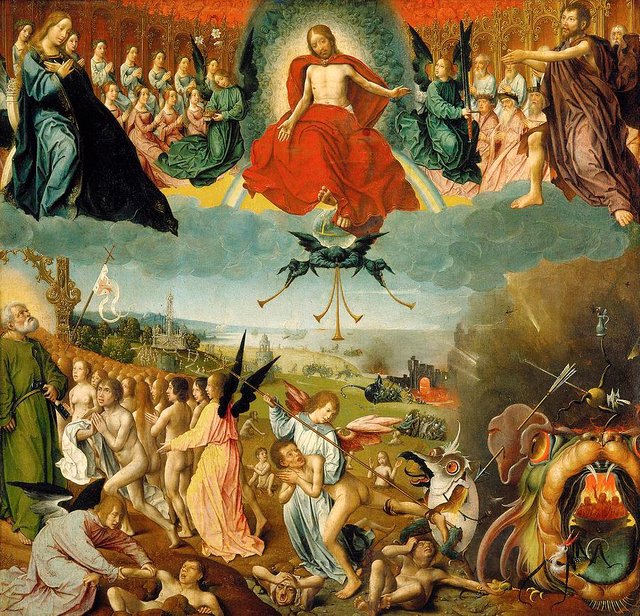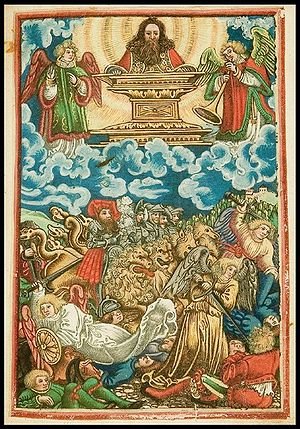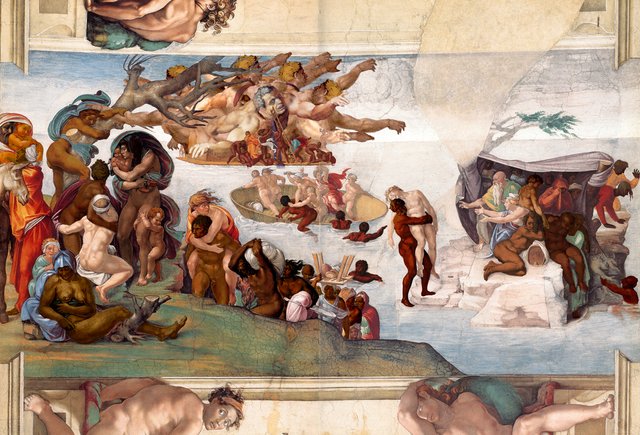Do you see the bible as a book written as non-fiction, but is fiction? A fictional book written by geniuses? A factual book that did not require a physics explanation (those who wrote the book saw the events and thus did not think further explanation was necessary)? Abstractions of reality told in memorable and conveyable ways?

Knowing Yourself:
Before you continue reading take a moment and think about the above questions. Did any question in particular make you angry or happy to read? If so, why? Just take a moment and think about why your emotions took over your thought process.

You had an emotional response, because either your foundation/reality was at odds with one of the above questions (anger) or your foundation/reality was reinforced (happy).
The Bible’s Offer:
Well what does a person get from the Bible? That's simple in the most basic explanation, knowledge; but what knowledge and is the knowledge useful? First we need to understand what you have without the Bible right? Does that make sense?

How do we receive knowledge?
- We are born with knowledge, these are instincts (born to genetically learned)
- Your parents give you knowledge (born to socially learned)
- You learn from the state and society (force on socially learned)
- Finally what you seek on your own, including mentors and friends (self-subjected to socially/independently learned)
Now this is fairly simplistic, but you get the point. So which one of these areas teaches you not to murder? Well probably all of them. Why don't you murder? Well you go to jail. Is that the only reason? If there were no jails would you murder? Well why or why not?

That's an extreme example, but you can take a lesser extreme and the same will be true. Anyone ever tell you at school don't hit? That makes sense don't hit other people, but why does that make sense. Some of you may intuitively know this as a child, but without an explanation you do not conscientiously know why. But for everyone else the why don't they hit? Well there is punishment right? OK so let's say there is no punishment why else wouldn't you hit? You feel other people's pain (empathy) you feel bad for a person when they are hurt (sympathy).

The Bible does give quite a few direct "Do this" and "Don't do this", but a much larger portion is given to the why behind the why. What does that mean you might ask, the why behind the why? Let's go back to why don't you hit, the first why is the consequence, but there needs to be something deeper than that. If there isn't then you will still hit, just not when the consequence occurs or you are ready to pay the consequence. So what's deeper than the consequence? The unavoidable consequence or the universal truths. Now in the Bible there is God and God defines the unavoidable consequences through many simple phrases and stories, but when examined these stories are anything but simple they are extremely complex abstractions of universal truths. If you are an atheist though there is no God for you. So does that mean an atheist has no "unavoidable" consequence? No it doesn't, an atheist's unavoidable consequence is far worse and I'll go into some depth on this.

Understanding Unavoidable Consequence:
You may need a better explanation about punishment before we approach worse punishment. The unavoidable consequence does not require God. The simple answer in the Bible, for children, is that the unavoidable consequence is God's wrath or rules, but Adults understand these unavoidable consequences are the universal truths. So saying the punishment will be worse, because one does not believe in God is not to say that the reason the punishment is worse is because God would enact a worse punishment on an atheist. Clarifying this is extremely important, God is the ultimate truth for a Christian, well if you are not a Christian or are an atheist does that mean there is no longer an ultimate truth? Well of course not, the ultimate truth still exists, in the case of the atheist that truth is created by their individual experiences (see how we receive knowledge).

Why the Atheist's Punishment is Worse:
Now what does that mean to withstand conflicts? Well if you are doing something right or wrong and the unavoidable consequence crushes you, what do you do? You retreat, you will look for answers. There was not supposed to be a bad consequence for this action you took. You will search for the rules broken or unbroken and try to reconcile cause and effect. The Christian retreats to the Bible, to God. With the motivation and IQ or guidance they will find the answer. Where will the atheist go to make sense of their toils that have caught them up? The atheist must retreat into their own conscientiousness, now answers lie here as well, but are much harsher to learn in such a way. To know yourself is to know both the good and the evil of yourself and when you approach yourself with doubt, beware of the consequences. All the fault is on your shoulders and without any knowledge of the Bible you probably haven’t accepted this universal truth yet, and goodness it will be nearly impossible to do so when you are already down in the dirt. Your realization could impact and crack the deep foundations of your very being and if those cracks are not filled in, you may become cruel to those around you or even cruel to yourself. Take the story of Cain and Abel; Cain killed Abel, because he couldn’t accept the universal truth.

Summary:
The Bible is more than a religion, there are stories in the Bible that have the capability of creating strong foundations of conscientiousness. These truths are beyond religion and beyond historical events.
Action for Atheists:
Read one or two chapters from the book of Genesis and do not relate any of it to religion, consider God as the ultimate truth. Then comment and tell me what you discovered. What truths did you learn?
Action for Non-Atheists:
Read one or two chapters from the book of Genesis and do not relate any of it to religion, consider God as the ultimate truth. Then comment and tell me what you discovered. What truths did you learn?
Final Note:
I am not attempting to question anyone's beliefs. My goal is to point out that the bible contains a vast wealth of knowledge that should not be discarded by anyone seeking knowledge regardless of their religious beliefs.
Reference to learn more
Bible - King James Version
Jordan Peterson's lectures on the Bible (can be found on youtube channel Jordan B Peterson)
Read my introduction to Europeans. Christianity is a plague.
Downvoting a post can decrease pending rewards and make it less visible. Common reasons:
Submit